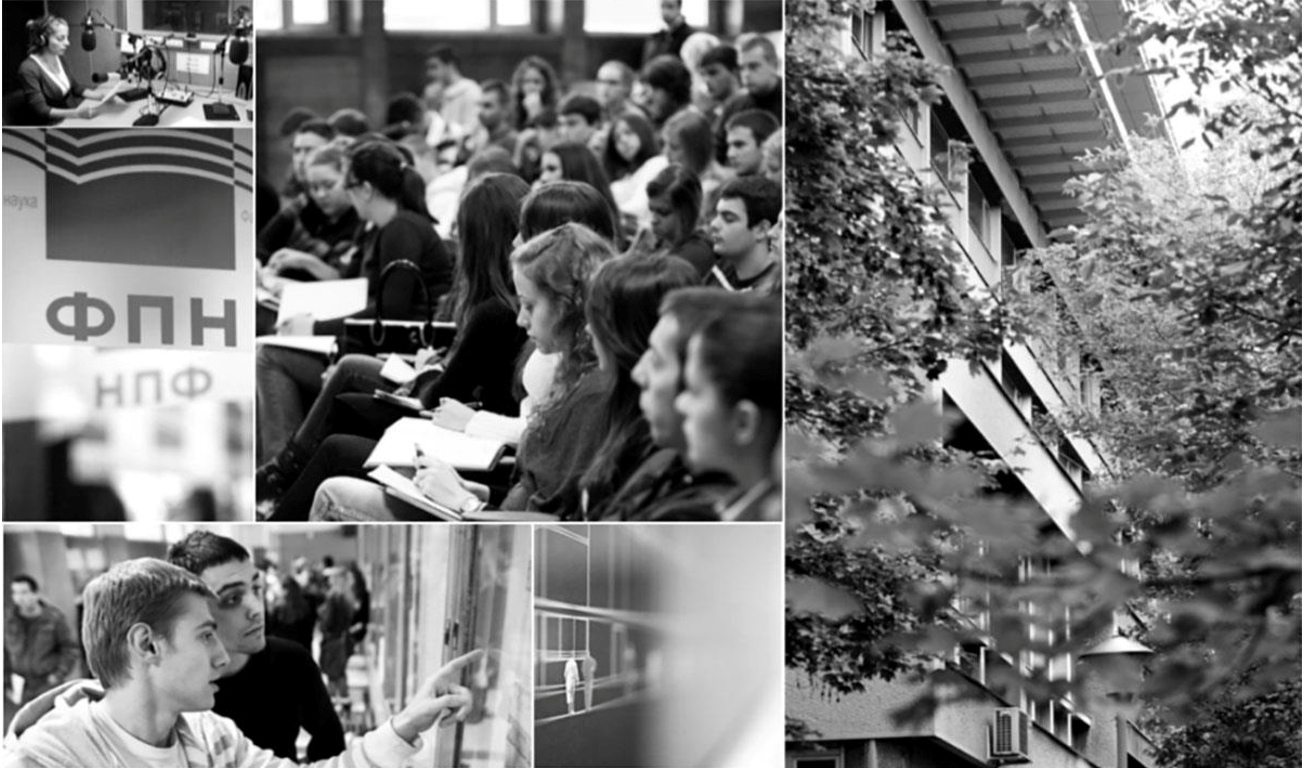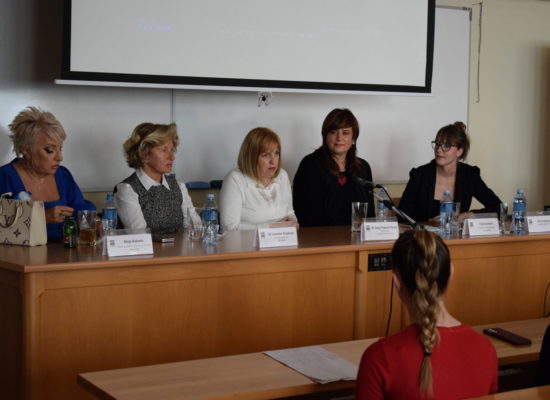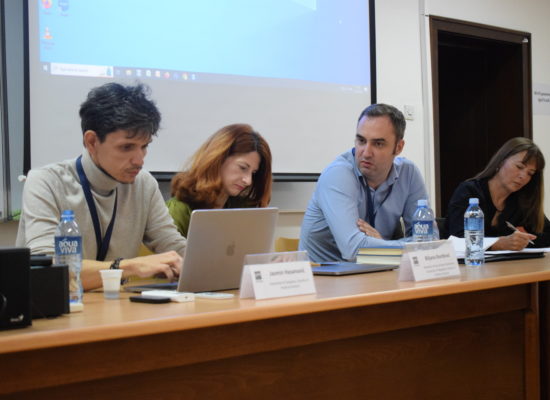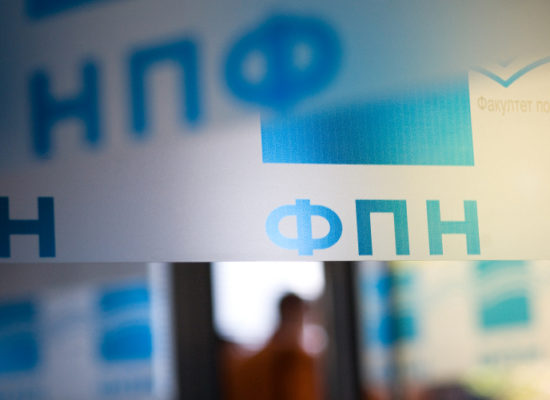
Second call for applications: MA in Peace, Security and Development
Second call for applications: MA in Peace, Security and Development, 2024/2025
University of Belgrade – Faculty of Political Science
About
University of Belgrade – Faculty of Political Science is pleased to announce the second call for applications for the MA in Peace, Security and Development for the academic year 2024/2025. The program is housed by the Centre for Peace Studies and Centre for International Security and combines the best of the local expertise with world class scholarship, cutting edge teaching methods, and practice-based learning. This will give students interested in peace, conflict and development studies a perfect opportunity to study not only in the classroom but also outside of it, in the bustling city of Belgrade and in the heart of the Balkans. The MA in Peace, Security and Development consists of two semesters, each carrying 30 ECTS credits. Upon completing both semesters, and attaining 60 ECTS – 12 of which are attained by writing and defending the master’s thesis – the student will be awarded the title Master of Arts (MA).
When to Apply?
The second call for applications in 2024/25 is open by 27 September. The program starts in the second half of October 2024.
Program Content
The MA in Peace, Security and Development aims to educate and train students to use the conceptual apparatus of peace, security, and development studies, to acquaint them with basic theoretical approaches and debates in these three areas, as well as to train them for further research in these and related fields of social sciences and humanities. The program also aims to educate and train students for professional work in scientific research institutions and other organizations and institutions that deal with peace, security, and development issues. It strives to improve and deepen theoretical and practical knowledge that students acquired in undergraduate academic studies, primarily international studies, but also to develop their ability to solve more complex problems using theoretical knowledge and methodological approaches learned during the program. Upon completion of the program, students will master the fundamental knowledge of peace, security, and development studies, as well as skills for professional engagement in various organizations. The acquired knowledge will enable students to perform multiple scientific research tasks at faculties, institutes, and similar institutions, as well as analytical work in state administration bodies, national and international governmental and non-governmental organizations. In addition, this study program serves as a preparation for doctoral studies in the field of peace, security, and development (or related disciplines) in the country, the region and beyond.
The curriculum of the master’s program in Peace, Security and Development is designed so that in the first semester, the focus is on theoretical knowledge, and in the second semester, on methodological skills. Such an approach aims to start preparing students for writing the final master’s thesis in the second semester, after being introduced to the choral disciplines of peace and security. The program is based on cutting edge theoretical knowledge about the field taught through both conventional lectures and innovative methods of active learning through film, popular culture and serious games. In addition to theoretical and methodological classes, in the first semester, students also have the Joint Project, which continues in the second semester through an internship in organizations and institutions dealing with peace, security and international development. Bearing in mind that the program is in English and that it is expected to attract not only domestic but also international students, a number of courses that focus on the context of Serbia and the Western Balkans will also be offered.
In the first semester, a student has three compulsory courses and two elective courses in an elective group of 6 courses. In the second semester, in addition to the already mentioned internship, a student enrolls compulsory courses and one elective course. The writing of the final thesis is also planned for the second semester. Conceptually, the program is divided so that, in the first semester, the emphasis is on issues of peace and security, while in the second semester students deal with issues that are primarily related to (unequal) development.
Compulsory units in the first semester are: (1) Critical Security Studies, (2) Critical Approaches to Peacebuilding, and (3) Joint Project. Elective units in the first semester are: (1) European Security, (2) Security Sector Governance, (3) Failed States and Statebuilding, (4) Regional Peace and Security through Cinema, (5) Democratization (taught in Serbian), and (6) Disintegration of Yugoslavia and Post Yugoslav Wars. Compulsory units in the second semester are: (1) Development Studies: Approaches, Actors and Issues, Academic Writing, and (2) Internship. Elective units in the second semester are (1) Inequality, Migration and Development, (2) European Colonialism and Its Legacy, and (3) Theories and Policies of Justice (taught in Serbian).
The Master program is taught in English language.
Scholarships
Teaching staff
Nemanja Džuverović, Filip Ejdus, Aleksandar Milošević, Goran Tepšić, Dejan Jović (University of Zagreb), Natalija Perišić, Marko Kovačević, Nebojša Vladisavljević, Tijana Rečević, Aleksandra Perišić (Faculty of Media and Communication), Đorđe Pavićević, Biljana Đorđević.
Besides professors and lecturers from the Faculty of Political Science, program also includes guest lecturers. In the previous academic years, guest lecturers were:
Iver Neumann (University of Oslo), Stefano Guzzini (Uppsala University) Lene Hansen (University of Copenhagen), Oliver Richmond (University of Manchester), Susan Woodward (City University of New York), Roger Mac Ginty (Durham University), Francesco Niccolo Moro (University of Bologna), Chas Morrison (University of Coventry), Cornelius Friesendorf (IFSH), Toni Haastrup (University of Stirling) etc.
Entrance Requirements
To be admitted to MA in Peace, Security and Development, students must:
- hold a Bachelor’s academic degree (240 ECTS) or Bachelor’s and Master’s academic degree (300 ECTS)
- be proficient in the English language
Interested applicants must submit the following documents:
- application form
- a certified copy of a diploma obtained at the undergraduate level
- diploma supplements (if applicable)
-
Confirmation from the University of Belgrade regarding recognition of foreign higher education document (if possible)
-
Passport copy (first page) – only for international students
-
ID copy – only for domestic students
- CV (maximum two pages)
- a motivation letter in English indicating applicant’s research interest (up to 500 words)
- a proof of English language proficiency (IELTS at least 6 or TOEFL at least 95 or another equivalent certificate). Applicants who speak English as a mother tongue or completed BA degree or higher in English are exempted.
Please send all the supporting documents as a single pdf file to: psd@fpn.bg.ac.rs.
Tuition Fee
124,000 RSD for Serbian citizens and 1,500 EUR (in Serbian dinars) for international students, payable in four instalments. The tuition fee covers all costs of a two-semester studying at the University of Belgrade Please note that students with foreign diploma pay additional 90 EUR University fee for the recognition of foreign documents. The procedure for the diploma recognition starts once the candidates are informed of acceptance to the programme.
Further Information
More information for international students in Serbia: https://www.studyinserbia.rs/
Useful tips for people moving to Belgrade: https://belgradegets.digital/
If you have any additional questions regarding the Program, please see the official website or contact following professors:
Marko Kovačević, MA Peace, Security and Development 2024/2025 coordinator, marko.kovacevic@fpn.bg.ac.rs
Nemanja Džuverović, nemanja.dzuverovic@fpn.bg.ac.rs
Filip Ejdus, filip.ejdus@fpn.bg.ac.rs



